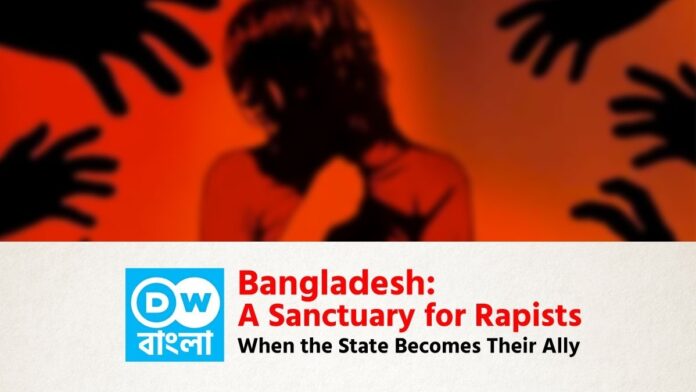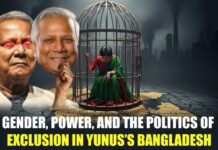This country is no longer a safe place for women. Every day, somewhere in Bangladesh, a woman is raped, while the state remains a silent spectator. Rape is not just a crime—it is the ultimate manifestation of the state’s failure. When a rape survivor seeks justice at a police station, she is violated all over again—this time with a barrage of questions. Through so-called medical examinations, courtroom interrogations, and the society’s accusatory gaze, she is forced to relive the trauma over and over.
Rape in this country is a hidden epidemic. Government statistics show that twenty-four women were raped in just nine days. Among the cases, a man over sixty raped a child. The numbers are horrifying, but even more horrifying are the individual tragedies hidden behind each statistic. The child who was raped will carry that wound for a lifetime. The woman who was gang-raped will never be able to show her face in society again.
Who are the rapists? They are part of our own society. Police officers, schoolteachers, political leaders—people from every profession are involved in this heinous crime. The police constable from Sunamganj who raped a young woman under the false promise of marriage is now in jail. But how many other rapists still roam free in our society, with no case ever filed against them?
The situation in the courts is even more tragic. Rape survivors are interrogated about their clothing, their character. Defense lawyers ask such questions that it seems rape isn’t a crime at all, as if the survivor herself is the criminal. Cases drag on for years, witnesses are harassed, and many cases are eventually dismissed.
Today, social media has become a new source of terror for rape survivors. Videos and photos of the rape are often spread mercilessly. Survivors are constantly reminded of their trauma. Society looks at them with suspicion, as if they have done something wrong. But the rapist? His picture is never shared, his name doesn’t spread like wildfire.
What is the state doing? Of the 281,000 complaints filed with the Ministry of Women and Children Affairs, most remain unresolved. The government talks about introducing new laws, but what good are new laws if the existing ones are not enforced properly? Death penalty provisions have been introduced—but has the death penalty been able to prevent rape?
How can this situation change? Changing laws alone is not enough; what we need is a social revolution. Women can no longer remain silent. They must take to the streets, surround the courts, identify rapists, and demand justice. Men must also join this fight—those who are not feminists are enemies of women.
As long as people like Mohammad Yunus remain in power, nothing will change. Because for them, women’s rights are not even an issue. In this country, a woman’s body is still a battlefield. And until the state takes responsibility, this bleeding will not stop. The state must be challenged if we are to defeat the rapists—otherwise, women will never be safe.




